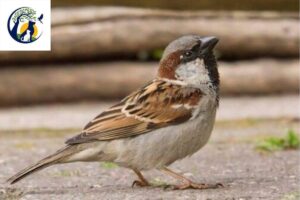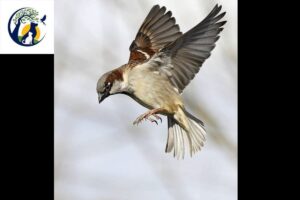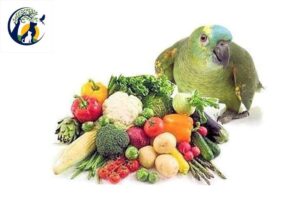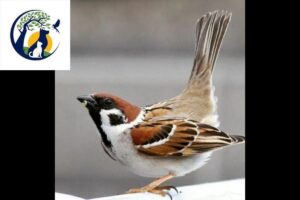Introduction;

Birds are fascinating and delightful companions that bring joy and vibrancy to our lives. To ensure their well-being and longevity, it’s essential to provide them with a well-balanced and nutritious diet. Just like humans, birds have specific dietary needs that must be met to keep them healthy and happy. In this guide, we’ll explore the key components of proper bird nutrition and offer valuable insights on how to take care of your feathered friends.
Owning pet birds is a delightful experience, as they bring joy, beauty, and lively chirps into our lives. As responsible bird owners, it is crucial to provide them with the best care possible to ensure their health, happiness, and overall well-being. Whether you have a budgie, a cockatiel, or a parrot, here are some essential tips to provide optimal pet care for your feathered friends:

A comprehensive guide to bird nutrition
Understanding Bird Dietary Requirements:
Different bird species have unique dietary preferences and nutritional needs. However, there are some fundamental principles that apply to most pet birds:
1.High-Quality Pellets:
Pelleted diets formulated specifically for your bird’s species can serve as a solid foundation for their nutrition. These pellets contain essential vitamins, minerals, and nutrients, and they discourage selective eating, ensuring a well-rounded diet.
2.Fresh Fruits and Vegetables:

A comprehensive guide to bird nutrition
Incorporate a variety of fresh fruits and vegetables into your bird’s diet. Dark leafy greens, carrots, bell peppers, and apples are excellent options. These foods provide essential vitamins and fiber.
3.Lean Protein Sources:
Lean protein is crucial for your bird’s health. Offer sources like cooked poultry, eggs, legumes, and beans. These provide necessary amino acids for muscle development and overall vitality.
4.Healthy Fats:
Provide healthy fats through nuts, seeds, and foods rich in omega-3 fatty acids. Fats support energy production and maintain healthy skin and feathers.
5.Limited Treats:
While treats can be a fun addition to your bird’s diet, they should be offered in moderation. Seeds and sugary snacks should be occasional treats rather than staples.
6.Establishing a Balanced Diet:
A balanced diet is key to your bird’s overall health. To ensure they’re receiving the right nutrients, follow these guidelines:
7.Consult an Avian Veterinarian:
Before making any dietary changes, consult a veterinarian who specializes in avian care. They can provide insights into your bird’s specific needs and recommend a suitable diet.
8.Variety is Vital:
Offer a diverse range of foods to prevent monotony and provide a wide spectrum of nutrients. Rotate fresh foods and experiment with different options to keep your bird engaged.
9.Monitor Portion Sizes:
Pay attention to portion sizes to prevent overfeeding. Obesity is a common health issue in pet birds, so be mindful of the quantity of food you provide.
10.Fresh Water:
Clean, fresh water should always be available. Hydration is crucial for digestion and overall well-being.
Additional Considerations:
Avoid Toxic Foods: Certain foods are toxic to friendly friend, including avocado, chocolate, caffeine, and alcohol. Familiarize yourself with these hazards to keep your feathered friend safe.
Social Mealtime: friendly friend are social creatures, and they often enjoy eating alongside their human companions. Create a pleasant mealtime experience by interacting with your bird during feeding.
Observe and Adjust: Pay attention to your bird’s behavior, weight, and overall health. If you notice any changes, consult a veterinarian promptly. Adjust the diet as necessary based on their individual requirements.
Maintain a Clean Environment: Ensure a clean and hygienic living environment for your friendly friend. Regularly clean the cage, removing waste, soiled bedding, and uneaten food. Disinfect the cage and any accessories inside of it regularly to prevent the buildup of harmful bacteria. Use cleaning products that aren’t toxic to the birds, and avoid strong chemicals or sprays near your bird’s living area.
Conclusion:

A comprehensive guide to bird nutrition
Proper nutrition is the cornerstone of your friendly friend’s health and happiness. By providing a well-balanced diet that includes high-quality pellets, fresh produce, lean protein, and healthy fats, you can ensure your feathered companion enjoys a long and fulfilling life. Regular veterinary check-ups, monitoring portion sizes, and maintaining a positive mealtime environment are all essential components of excellent bird care. Remember, a well-nourished friendly friend is a joyful and vibrant companion that brings endless delight to your life.
Thank you for reading. For more such pet-related articles, keep visiting our website
Twitter-https://twitter.com/petcaredunia?t=ec5aPU0-IkIxg_6VpEa8IA&s=09
You Tube- https://youtube.com/@petcareworld?feature=share9
